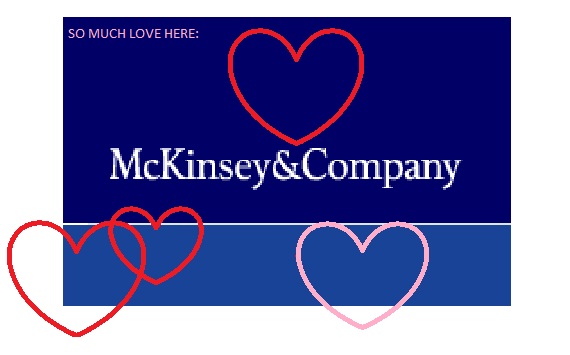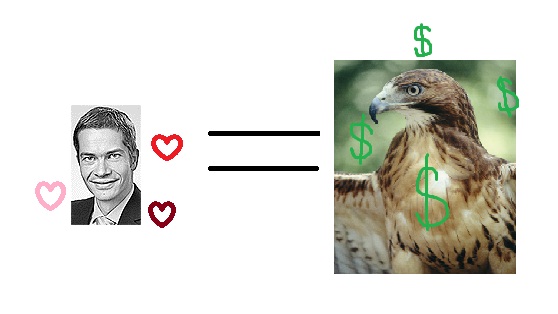In the spirit of what appears to be the new modus operandi for constituency coverage, we’re pleased to bring you a guest post about something we know nothing about: The CUS Referendum (previous article on the subject here). Our guest blogger is a most notable Sauder student (a ‘Saudi,’ if you will), the owner of one impeccable black suit, and a heckuva lady.
Let’s face it—the halls of Henry Angus are abuzz with talk of this building referendum. Walk into the Sauder building and you’re bound to find people in little “ask me!” t-shirts, eyes glazed over from lack of sleep and willing to tell you all the amazing things that will happen in phase two and beyond—all you have to do is vote yes.
FACT #1—VOTE INFORMED…OBVIOUSLY: Let’s be frank here. I’m not going to tell you how to vote, or think, or act. I’m not going to discount cash flows and show fancy graphs and numbers as there are plenty of other blogs doing that. I’m going to tell it like it is, clear and simple, for people that want some sort of honesty before they hit the polls. Chances are though, if you’re a Sauder keener, you’ve already voted. But if not, perhaps you should continue to read this and maybe even comment below, because when all is said and done, it’s really about two things: value and principle.
FACT #2—THIS SHOULD HAVE BEEN A TUITION INCREASE AND NOT A STUDENT FEE: When it comes to a student fee, you need to get it voted in by a referendum, convince students to vote yes and achieve quorum, convince the AMS to ratify the referendum results, bring it to UBC’s BoG and then hope to God that the Province doesn’t shoot it down. Sound like a lot of work? Well, it is, and if by some chance all goes well, the funds flow in a rather complicated way: to UBC to the AMS and back to UBC. EVERY. SINGLE. YEAR. Money is lost because of handling fees and admin time and quite frankly, it just doesn’t make sense. The reason for this is a tuition cap by the provincial government, and because of this freeze, institutions are finding creative ways of upping the price. This whole building debacle is the equivalent of you going to the back door of the Pit because you didn’t want to stand in line and paying the bouncer, then getting caught by the manager and having to pay him too.
FACT #3—THOSE WHO TRULY BENEFIT FROM THIS ARE THE SAUDER “SUPER ELITE”: There are Sauder students, and then there are the crazy, super-involved, future CEO Sauder students. [Ed. note: our guest may or may not be one of these.] Those are the ones that try to improve the UBC community, beef up their resumes, and they all hang out together in one giant ball of awesome. They are the CUS, the conferences and the clubs. They are the ones that wear suits just because they can, apply to jobs they are not qualified for yet still manage to nail them, and spend more time on volunteer position projects than on class projects; they want to see a Sauder just as good as the Iveys and the Whartons of this world. And they are the ones that will most directly benefit from the better building. The rest? Well, they’ll get an amazing facility all right, but they’d still become the same bookkeepers they would have become had the building never been improved.
FACT #4—YOU DON’T MESS WITH EX-MCKINSEY CONSULTANTS: What has set this referendum apart is backing from alumni. This is both a good and bad thing. You get strong, mature and knowledgeable people putting themselves behind an initiative—but you also get extremely persuasive individuals affecting the results of this vote. And trust me, when an ex-Mckinsey, ex-CUS president and all-round rock star wants you to vote yes, you are going to vote yes, a) because you fear the guy and b) you retain a small hope that one day, he’ll get you a job. That has been my only point of worry during this whole campaign; people unable to voice their opinions because they are afraid that they’ll be ostracized later.
![]() FACT #5—SPEAKING OF MCKINSEY, YOU DON’T MESS WITH A FRENCH MAN: Ladies and gentlemen, my new-found crush is none other than UBC’s VP Finance, Pierre Ouillet. [Ed note: ooooOOOOoooooOOOOooo] This man cut SEVEN LAYERS of middle management and somehow found thirty million dollars to balance UBC’s budget. This man is a hawk, and if Sauder does not manage to cough up enough money to cover their ass, they will have to answer to this guy. He’ll most likely bail out the faculty with newly allowed debt financing and force Sauder to cut programs. But what he’ll also do is cut from other faculties and essentially “slow down” the renovations line so that other buildings slated for renovation, like law and pharmacy, are postponed. Taking our previous analogy further, that’s like having to wait in line at the Pit only to realize that the extremely long wait was because the bouncers had to take care of a pesky customer that got in through the back door.
FACT #5—SPEAKING OF MCKINSEY, YOU DON’T MESS WITH A FRENCH MAN: Ladies and gentlemen, my new-found crush is none other than UBC’s VP Finance, Pierre Ouillet. [Ed note: ooooOOOOoooooOOOOooo] This man cut SEVEN LAYERS of middle management and somehow found thirty million dollars to balance UBC’s budget. This man is a hawk, and if Sauder does not manage to cough up enough money to cover their ass, they will have to answer to this guy. He’ll most likely bail out the faculty with newly allowed debt financing and force Sauder to cut programs. But what he’ll also do is cut from other faculties and essentially “slow down” the renovations line so that other buildings slated for renovation, like law and pharmacy, are postponed. Taking our previous analogy further, that’s like having to wait in line at the Pit only to realize that the extremely long wait was because the bouncers had to take care of a pesky customer that got in through the back door.
![]() FACT #6—YOU’RE DAMNED IF YOU DO AND YOU’RE DAMNED IF YOU DON’T: To get a better school, you need more money, but to get more money, you need a better school. So now what? The way I see it, it’s not about bailing about some ambitious Dean, or punishing the “bad” faculty, or simply building a building. It’s about laying down the foundation (or rather the rest of the foundation) for a better school. Sure, mistakes were made: Dean Dan should have secured financing, the CUS should have taken a more neutral stance and demanded more from their faculty, and the government should have worked together with the University and students so that this would never have happened in the first place.
FACT #6—YOU’RE DAMNED IF YOU DO AND YOU’RE DAMNED IF YOU DON’T: To get a better school, you need more money, but to get more money, you need a better school. So now what? The way I see it, it’s not about bailing about some ambitious Dean, or punishing the “bad” faculty, or simply building a building. It’s about laying down the foundation (or rather the rest of the foundation) for a better school. Sure, mistakes were made: Dean Dan should have secured financing, the CUS should have taken a more neutral stance and demanded more from their faculty, and the government should have worked together with the University and students so that this would never have happened in the first place.
![]()
In the end, it’s about value and where YOU see it. If you think that $500 a year for four, or five, or six years is worth it, will get you a better degree and ultimately a better job, then by all means vote yes. If you consider this a gross mismanaging of the referendum process (which it was, in a sense) and a sneaky way to increase tuition, then vote no.
But what you certainly must NOT do is not vote at all.
XOXO,
Little Spoon



Btw, tuition increases are tied to CCCPI, so a tuition increase instead of an additional student fee would not solve much for the faculty.
How to get this done.
1. Get a report from accreditors saying you’re at risk of losing, if you don’t get a huge capital investment.
2. Plan a fundraising campaigning to generate private donation.
3. Ask UBC Central how much they’re ready to debt-finance, so you can leverage that.
4. Take your financial model to the Provincial/Federal government. Mention you’re at risk of losing accreditation, and as such, the reputation of your school may go down the drain.
5. If the government agrees this is a priority and gives you some money, go ahead.
Government turns down capital projects all the time. It’s their job to do that in a system of public education. This runs around them, because the Dean’s perspective of urgency is out of touch with where the whole Province is. There’s more important sectors, according to government, and the case for urgency here was not made.